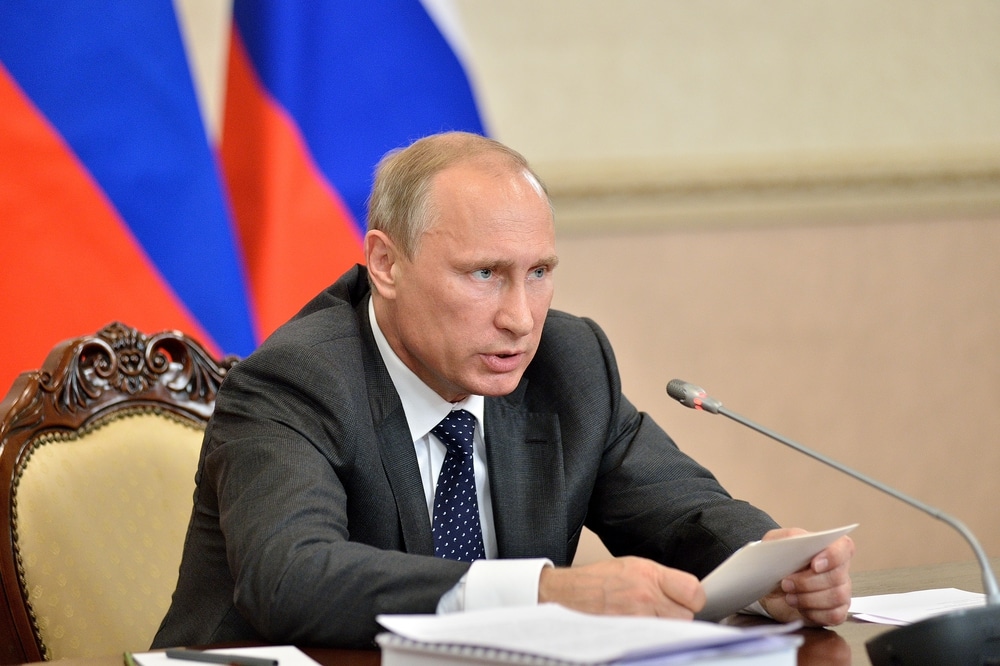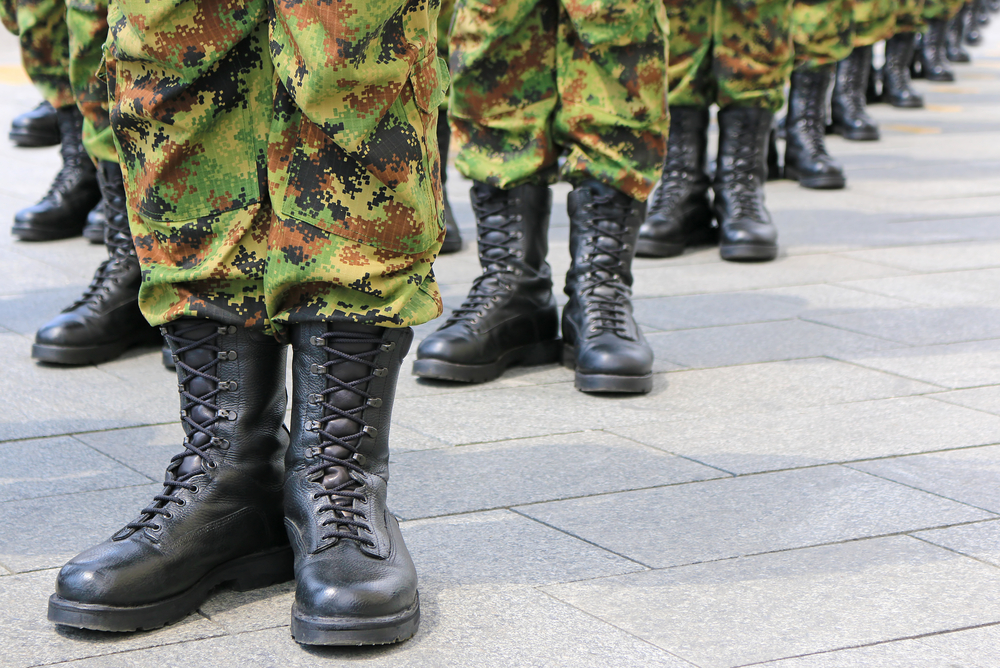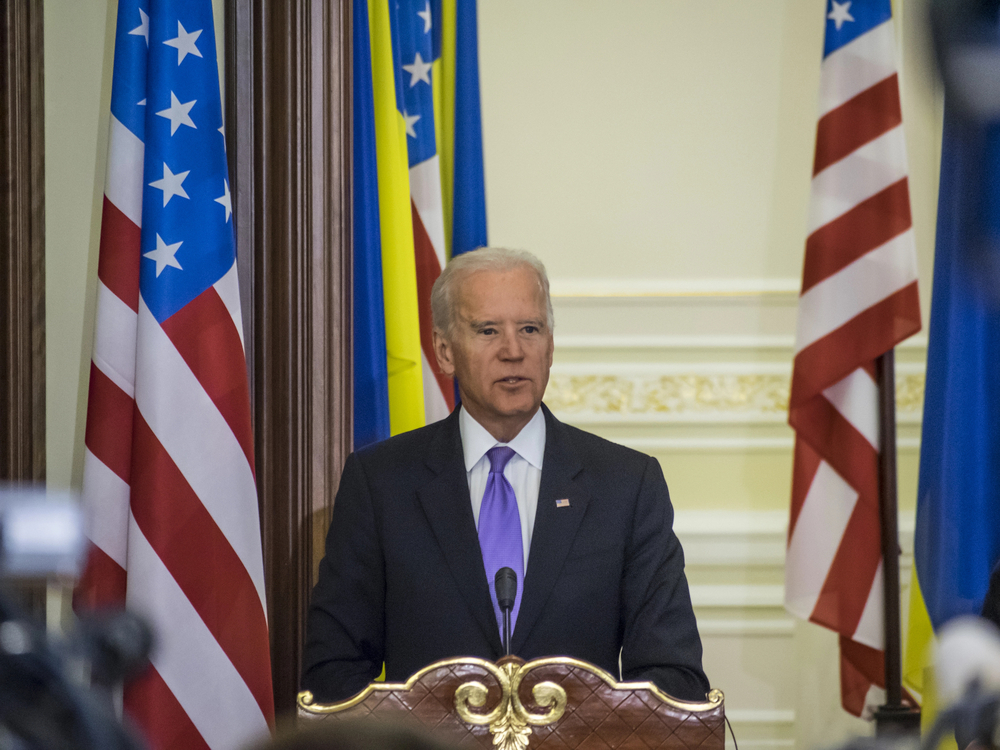The essential argument used to avoid negotiation and continue support for the war in Ukraine is based on a falsehood. That falsehood, repeated by President Joe Biden, is that when Vladimir Putin decided to invade, he intended to conquer all of Ukraine and “annihilate” it.
Its falsity has been exposed multiple times by military experts, who have pointed out, both before and after the invasion, that Russia could not have intended to conquer all of Ukraine because it did not invade with sufficient forces to do so. Indeed, this was a key reason why senior Ukrainian officials, and even President Volodymyr Zelensky himself, argued just days before the invasion that it would not occur.
The mistake that most analysts at the time made (these authors included), was to assume that since the troops mobilized by Russia did not suffice for a full scale occupation of Ukraine, no military operation, not even a limited one, was in the offing. It was only later that Western political leaders turned this mistake to their propaganda advantage by insisting that Russia had always intended to first take Kiev, then all of Ukraine, and ultimately even attack NATO.
But if basic military logic is taken into account, the fact that Putin committed only 120,000–190,000 men to his campaign and did not mobilize more resources until months later, after Kiev rejected the Istanbul peace deal, indicates that his objectives in Ukraine were limited and revolved around guaranteeing the security of the populations of Donbass and Crimea from Ukrainian assaults and Russia from NATO expansion. Given that Ukraine had cut off Crimea’s water and electricity years before, this required a land bridge to the region; hence, the illegal annexations of the Kherson and Zaporozhye regions.
We also have indirect confirmation that territory was not his objective from an unimpeachable source: NATO General Secretary Jens Stoltenberg, who stated that Putin invaded Ukraine to prevent NATO’s expansion. This would explain why, as soon as these goals were within reach when Ukrainian officials initialed the draft of the Istanbul Agreement in March 2022, Putin halted his assault and withdrew Russian forces from Kiev, rather than move further into Ukraine.
This background is important, because the argument for increasing Western military support for Ukraine relies so heavily on the claim that Russia always intended to expand further, attack NATO, and reestablish the Russian empire.
But, as noted scholar John Mearsheimer has pointed out, “there is no evidence in the public record that Putin was contemplating, much less intending to put an end to Ukraine as an independent state and make it part of greater Russia when he sent his troops into Ukraine on February 24th.” It was never one of Putin’s stated goals, nor was it ever taken seriously by the Ukrainian leadership. David Arakhamia, the head of Ukraine’s negotiating team in Belarus and Istanbul, recently revealed that the “key point” for Russia was Ukraine not joining NATO, and “everything else was simply rhetoric and political ‘seasoning.’”
Putin himself has consistently said that “this conflict is not about territory…[it] is about the principles underlying the new international order.” We should not take him at his word, but it is still worth asking: had Putin’s ambitions been territorial, would he have waited until 2014 to annex Crimea? Would the upper house of Russia’s parliament have rescinded Putin’s temporary authority to use troops in Ukraine in June 2015? Would he have opposed the 2014 independence referendums in Donetsk and Lugansk?
Looking back even further, if Putin had truly wanted to incorporate parts of the former Soviet Union, he had an ideal opportunity to do so in August 2008, when Russian troops were but an hour’s drive from the Georgian capitol of Tbilisi. He could have simply recognized the independence of Abkhazia and South Ossetia, and then annexed them to Russia, but he did not. Reviewing Putin’s current behavior, therefore, former U.S. Deputy Undersecretary of Defense Stephen Bryen concludes that “Russia has no intention of expanding outside of the Ukraine conflict area.”
The false narrative about Russian intentions has served its essential purpose of rallying Western countries behind Ukraine. Continuing to insist on it now, however, risks involving NATO directly in the conflict, and threatens Ukraine’s very survival.
If the challenge the West faces in this conflict is defined as “existential,” then what choice does NATO have but to send its own military forces in to prevent Ukraine’s defeat? President Biden implied as much when he said, “If Putin takes Ukraine, he won’t stop there. It’s important to see the long run here. He’s going to keep going…Then we’ll have something that we don’t seek and that we don’t have today: American troops fighting Russian troops.”
At some point, a decision will have to be made to either greatly expand the West’s commitment, or abandon Ukraine to its fate. Alas, President Biden’s request for $61 billion in additional funding for 2024 does neither, since Ukraine needs at least five time that amount to win, according to its top military commander. With the Ukrainian counteroffensive already running out of steam due to a lack funding, lack of weaponry, and unsustainable losses, Ukraine will likely soon be facing a Russian counteroffensive.
Before such an assault, however, Russia might offer Ukraine new peace terms, albeit far less advantageous than the ones it offered in March 2022. If Ukraine balks, Russia will press its overwhelming advantage and take more territory, which it does not really want (for a good discussion of why, see former Ukrainian diplomat Rostislav Ishchenko), in order to force Ukraine to the negotiating table.
At that point, the West will be faced with a fateful choice: either accept Ukraine’s surrender or send in NATO troops. Either scenario is likely to lead to sharp divisions in the NATO alliance, since Hungary, Slovakia, and Turkey have all indicated that they want a peaceful resolution to the conflict, not escalation.
The one thing that escalation cannot guarantee, however, is Russia’s defeat. That is because, by confirming Putin’s narrative that NATO is intent on destroying Russia, his support both within Russia and around the world would likely skyrocket. A more divided West would thus be facing a more united Russia, this time supported openly by the BRICS countries, as well as many other major international actors currently on the sidelines. This would effectively turn the tables on America’s strategy of using Ukraine to contain China’s global ambitions. Instead, it would now be Russia and its allies using Ukraine to contain the global ambitions of the United States.
It was, in no small part, the West’s original false narrative about Russia’s goals in Ukraine that has led us to this dismal outcome; European security weakened, the specter of nuclear war, Ukraine destroyed, and America’s global standing undermined. It has already been used once before to scuttle the Istanbul Agreement, which could have ended the war before hundreds of thousands died. For peace negotiations to become an acceptable alternative to mutual annihilation, this falsehood must be exposed and discarded.












